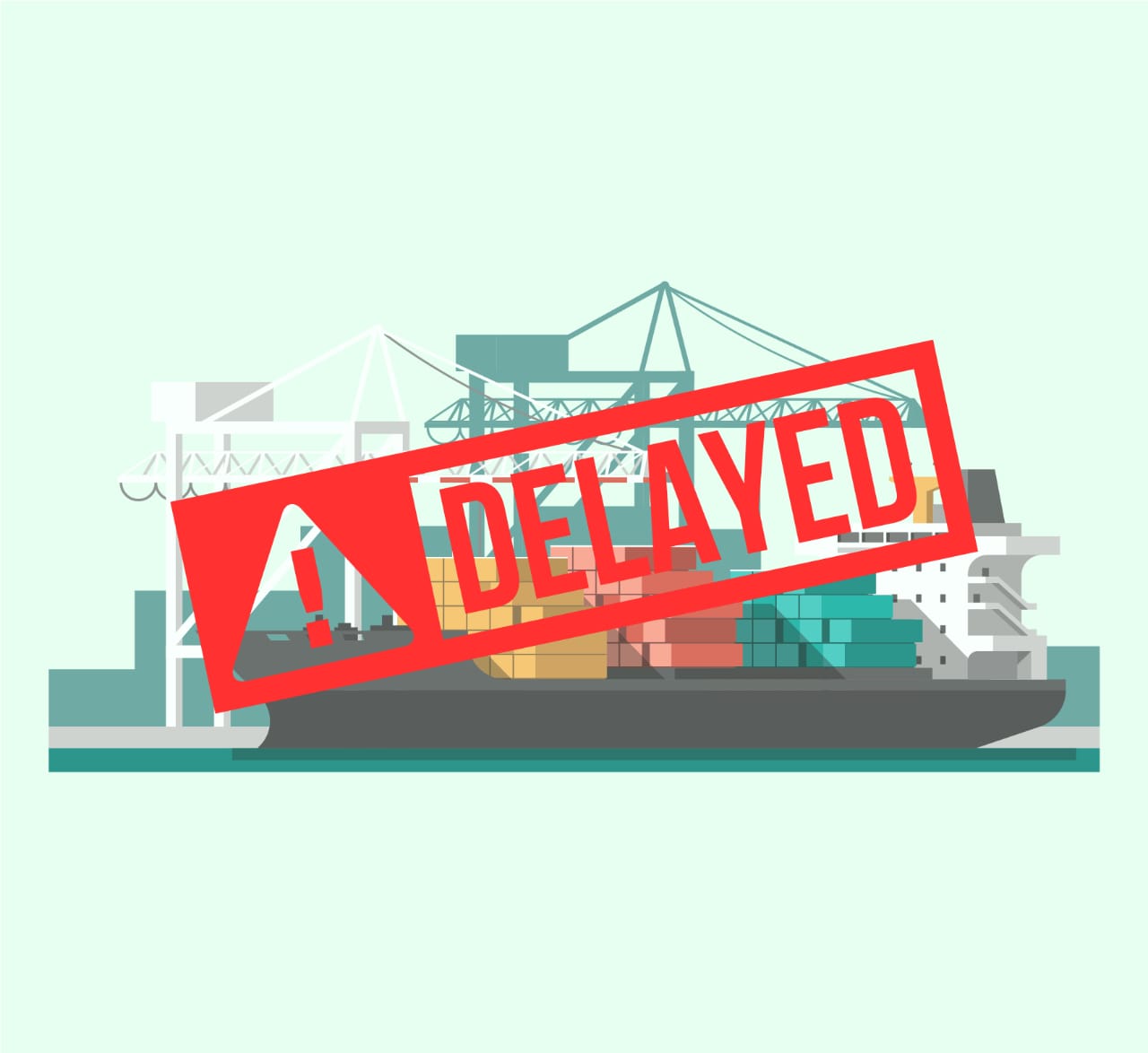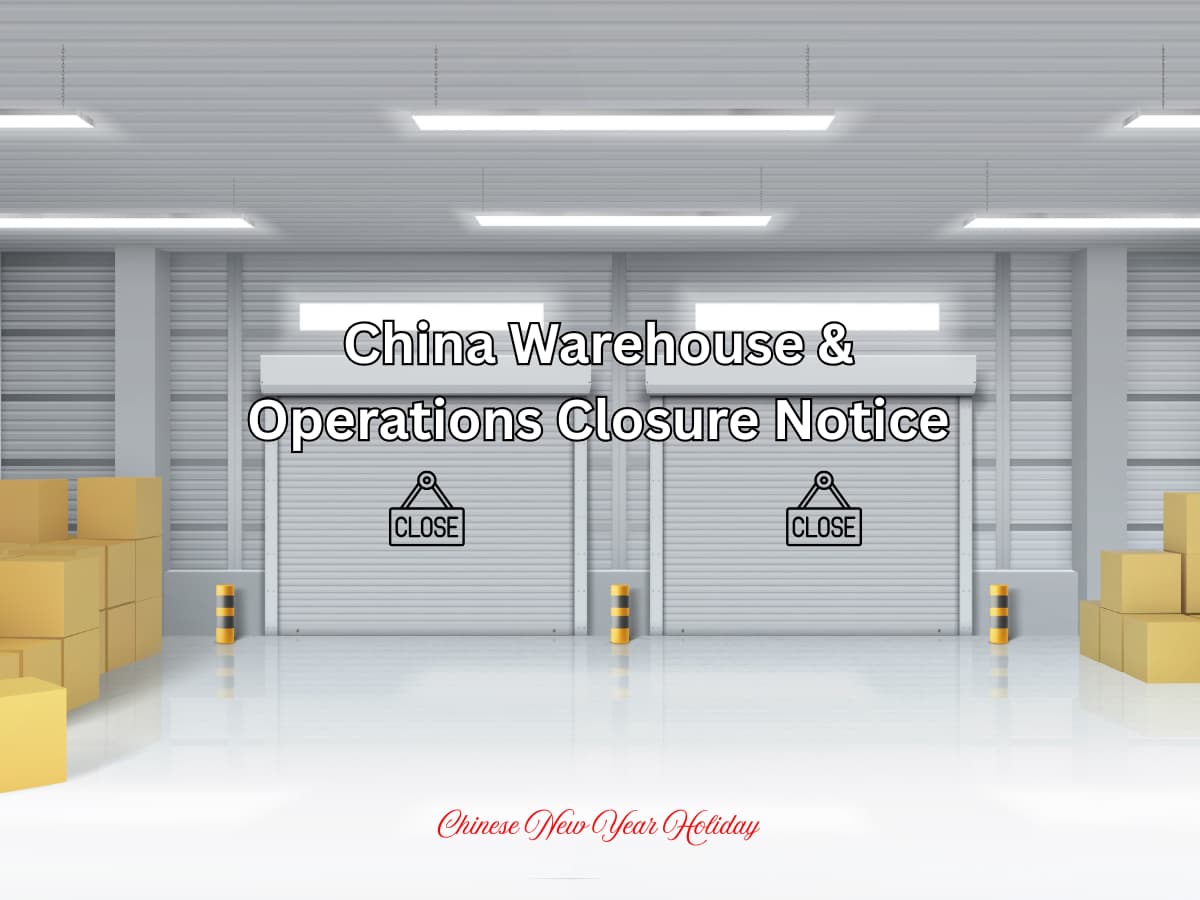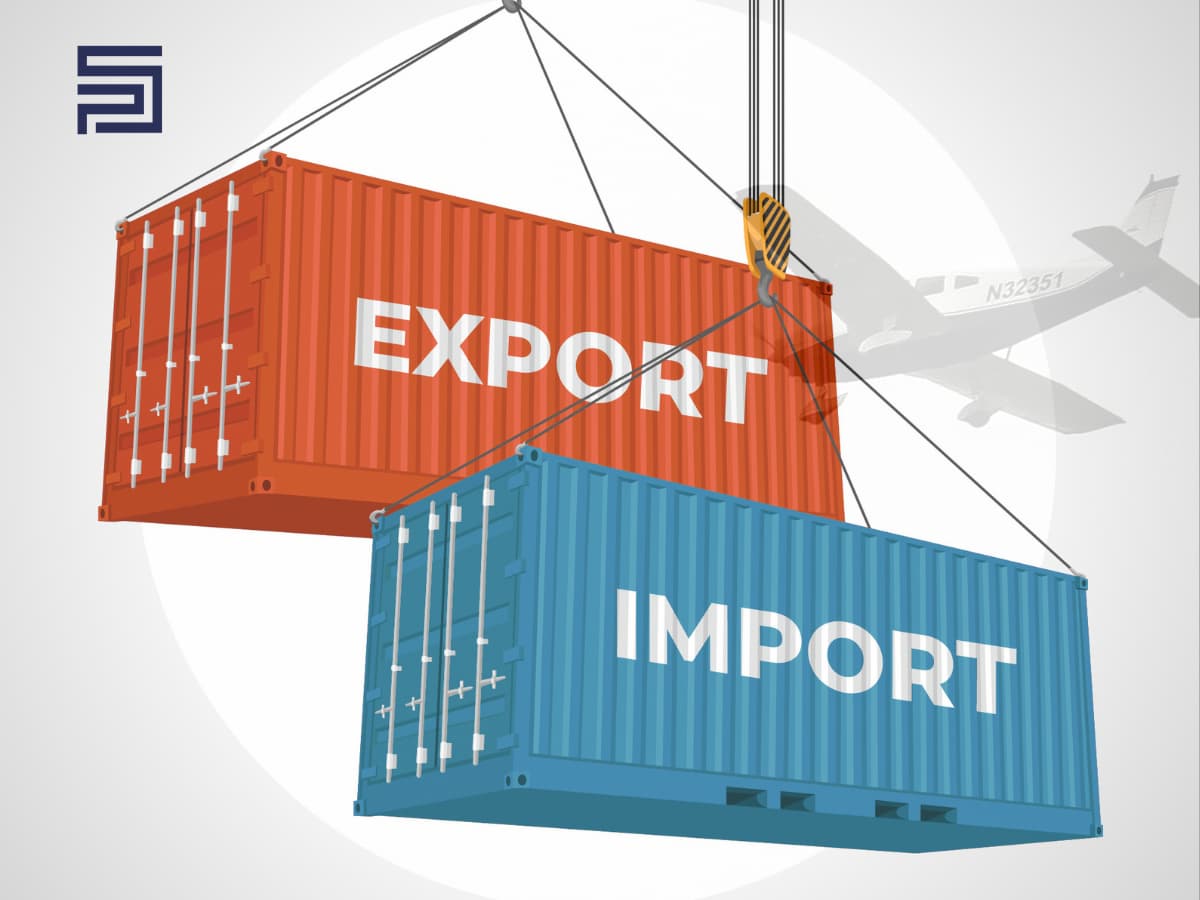One of the most persistent problems faced by the supply chain industry from its inception has been shipping delays, which negatively impact the Expected Time of Arrival (ETA) of shipments, thereby causing significant issues for retailers and end-users who cannot meet critical deadlines.
Both retailers and end users have felt the severe impact of delayed shipments, resulting in dissatisfied clients, lost revenue, unmet needs, unfinished projects, and tarnished brand images.
The ripple effects of shipment delays extend far beyond simple inconvenience, affecting entire business operations and customer relationships. Find out how to protect your own business in this article.
Do you need the help of professionals to assist you in your shipping process? Contact our team today, and let’s get your goods delivered fast.
What Causes Shipping Delays - Understanding the Root Problems
1. Inaccurate Shipping Data and Documentation Errors:
This remains one of the most preventable causes of shipping delays. Issues may arise from typographical errors made by the retailer, supplier, or carrier, poor translation in cases where there is a language difference, or outright sharing of wrong information, such as incorrect addresses or phone numbers.
When customers provide incorrect addresses, it inevitably results in delays. You need to properly document customer orders, including accurate names and addresses, to ensure that the courier companies we work with have the necessary information to deliver packages correctly.
Documentation errors can lead to packages being held at customs or returned to the sender, creating significant delays in the delivery process.
2. Inadequate Labour and Staffing Issues:
Several factors can lead to worker shortages, including pandemic outbreaks like COVID-19, industrial strikes, high labour costs, and peak season demands.
When there is a shortage of workers, especially in customs, this directly impacts the shipment's clearance time, packaging and order fulfilment process, creating bottlenecks throughout your supply chain.
The shipping industry can only function at maximum capacity when individuals who pick and pack orders, load and unload packages, and sort and transport them to assigned destinations are readily available.
Any labour-related issues can severely impact the industry, resulting in significant shipping delays that cascade through the entire logistics network.
3. Global Occurrences and Emergency Situations:
Global events such as pandemics, wars, economic crises, natural disasters, and other emergencies can cause massive disruption in the shipping landscape.
These events often lead to border closures, trade restrictions, and changes in shipping routes that we cannot always control or foresee, despite available research and forecasts.
Supply chain threats from geopolitical tensions, trade disputes, and economic sanctions can also create unexpected delays, making these disruptions particularly challenging to navigate and plan for.
4. Extreme Weather Conditions and Natural Disasters
At all stages of domestic and international shipping, extreme weather conditions create significant disruptions, leading to inevitable shipping delays. Severe weather can ground flights, close ports, and make road transport dangerous or impossible.
In more severe situations, natural disasters such as earthquakes, floods, landslides, hurricanes, typhoons, and tsunamis can cause delays lasting several days or even weeks. These events often damage transportation infrastructure, making it impossible for carriers to maintain normal delivery schedules.
5. Holiday Impacts and Seasonal Shipping Challenges
Both national and international holidays significantly impact shipping schedules. Many suppliers and carriers observe closures during holidays and, as a result, won't pick up or ship orders on those days. These work-free days create significant backlogs, further delaying shipping operations.
Additionally, the rise in demand volume during holiday seasons can easily cause shipping delays on a large scale. Suppliers face pressure to meet rising demand while carrier capacity is often maxed out, meaning shipping takes longer than usual.
A common one that affects our clients is the Chinese New Year holiday, which can sometimes stop the supply chain for months, leading to delays.
Check out our guide on how to prepare for holidays like this.
6. Supply Chain Issues and Port Congestion
Businesses frequently face shipping delays due to broader supply chain disruptions. These problems include supply chain shortages, severe port congestion, shipping capacity restrictions, and vessel delays that create bottlenecks at critical points in the logistics network.
Port congestion occurs when too many ships arrive simultaneously, overwhelming the facility's capacity to handle cargo efficiently. This creates a domino effect, where delays at one port impact shipping schedules globally.
7. Carrier-Specific Problems and Transportation Delays
Individual carriers face their own operational challenges that contribute to delays. These include mechanical problems with vehicles, driver shortages, route optimisation issues, and technology failures that disrupt normal operations.
Air freight delays often occur due to weather restrictions, airport congestion, or aircraft maintenance issues. Similarly, freight shipping delays can result from truck breakdowns, rail network problems, or vessel scheduling conflicts.
8. Customs and International Shipping Factors
International shipping involves additional complexity that can cause delays.
Customs inspections, documentation reviews, duty payments, and compliance checks all add time to the delivery process.
International shipping tracking factors affecting delivery time include customs clearance procedures, border crossing delays, and differences in shipping regulations between countries.
When shipping from regions like China to Nigeria, additional factors such as diplomatic relations, trade agreements, and seasonal shipping patterns can impact delivery timeframes.
What Does Shipment on Hold Mean
When you see "shipment on hold" in your tracking information, it typically means your package has been temporarily stopped in the shipping process. Common reasons include:
- Customs inspections require additional documentation.
- Address verification issues.
- Payment holds for duties or taxes.
- Suspicious package contents requiring investigation.
- Capacity constraints at sorting facilities.
- Weather-related safety holds.
Proven Ways to Minimise Shipping Delays
Understanding that shipping delays cannot be completely eliminated, specific measures can be taken to reduce their frequency and impact on all parties involved, especially retailers who risk losing customers and revenue.
1. Prepare and Plan for Inevitable Delays:
It's crucial to prepare ahead for shipping delays, knowing they will occur, especially on holidays. Create comprehensive contingency plans to reduce the impact when delays happen.
This includes developing alternative shipping strategies and maintaining tested backup shipping plans to implement when regular routes fail. Flexibility and adaptability are key to successful delay management.
2. Implement a Comprehensive Shipment Tracking System:
Regularly track your shipment status with carriers and provide customers with visibility to monitor progress themselves. This transparency reassures customers that their shipment is en route, even if delayed, and helps manage expectations effectively.
Shipment tracking can explain the cause of delays, helping customers understand that delays often result from factors beyond the retailer's control, rather than poor service.
At SARA, we offer you a tracking tool that you can use to monitor the movement of your shipments.
3. Maintain Open Communication Channels:
Maintaining transparent communication channels with clients and being honest about delays helps build trust in your business.
Most consumers want to know realistic delivery timeframes, and when goods don't arrive as expected, honest communication about the delay helps build business credibility.
When communicating shipping delays, provide specific information about the cause, expected resolution timeframe, and any steps being taken to expedite delivery.
Customers appreciate being kept informed rather than left wondering about their orders. You can also reach out to our expert team for any details you need.
4. Diversify Your Shipping Options:
Don't rely on a single carrier or shipping method. Develop relationships with multiple carriers to provide alternatives when primary options face delays.
At SARA, we handle this strategy for our clients, ensuring that at each point, we are working with the most reliable carriers available.
This approach helps reduce shipping delays by providing backup options when issues arise.
5. Optimise Documentation and Data Accuracy:
Implement systems to ensure accurate shipping data from the start. Double-check addresses, phone numbers, and product descriptions to prevent delays caused by incorrect information.
Invest in translation services for international shipments to avoid language-related errors. We advise you to let our professionals handle this for you.
6. Build Buffer Time into Delivery Schedules:
Account for potential delays when setting customer expectations. Rather than promising the fastest possible delivery time, build in reasonable buffers that account for common delay scenarios.
This approach helps manage customer expectations and reduces the impact of minor delays.
7. Monitor Global Events and Seasonal Patterns:
Stay informed about global events, weather patterns, and seasonal shipping trends that might impact your supply chain.
This awareness allows you to proactively adjust shipping strategies and inform customers about potential delays before they occur.
Tips for Dealing with Shipping Delays When They Occur
Immediate Response Strategies
- Contact your freight forwarder or carrier immediately to understand the specific cause and expected resolution timeline.
- Communicate proactively with affected customers before they contact you.
- Offer compensation or alternatives where appropriate to maintain customer satisfaction.
- Document the delay and its cause for future prevention efforts
Long-term Improvement Strategies
- Analyse delay patterns to identify recurring issues in your shipping process.
- Work with logistics partners to develop improved contingency plans. You can contact our team for this.
- Consider investing in technology solutions that provide better visibility and control. Check out the SARA tracking tool.
- Review and update shipping policies based on lessons learned from past delays.
Reducing Shipping Delays Through Strategic Partnerships
Working with experienced freight forwarding companies can significantly reduce shipping delays. Professional logistics providers offer:
- Multiple carrier relationships for backup options
- Expert knowledge of international shipping requirements
- Advanced tracking and visibility systems
- Proactive delay management and communication
How freight forwarding reduces shipping delays: by providing expertise, redundancy, and proactive management that individual shippers cannot achieve on their own.
We have a guide that explains the entire role a freight forwarder can handle on your behalf in the shipping process.
Contact us today and let’s optimise your shipping process, minimising all delays.
Industry-Specific Shipping Delay Considerations
Air Freight vs Ocean Freight
Air freight delays typically involve weather, airport congestion, or aircraft maintenance issues, but generally resolve faster than ocean freight problems.
Ocean freight faces longer-lasting issues like port congestion, vessel delays, and weather-related route changes.
International vs Domestic Shipping
International shipments face additional complexity from customs procedures, documentation requirements, and cross-border regulations.
Weather, labour issues, or carrier operational problems more commonly cause domestic shipping delays.
The Role of Technology in Delay Prevention
Modern shipping technology helps prevent and manage delays through:
- Real-time tracking systems that provide immediate visibility into shipment status.
- Predictive analytics that identify potential delay risks before they occur.
- Automated communication systems that keep customers informed.
- Route optimisation software that finds the most efficient delivery paths.
Frequently Asked Questions About Shipping Delays
Why are shipments delayed during certain times of the year?
Peak seasons, holidays, and weather patterns create predictable delay periods. Planning around these known challenges helps minimise impact. Speak to one of our experts to learn about the months in the year when this commonly occurs.
What is causing shipping delays in international routes?
International shipping delays often result from customs procedures, port congestion, vessel scheduling, and documentation requirements that don't affect domestic shipments.
Why are there shipping delays from specific regions?
Regional factors, such as infrastructure quality, regulatory requirements, seasonal weather patterns, and geopolitical situations, can impact shipping performance.
Do holidays affect shipping times?
Yes. National and international holidays can cause pickup and delivery suspensions and create backlogs. Ensure you plan earlier and increase lead times around known holiday windows.
Managing Shipping Delays Proactively.
Shipping delays cannot be completely avoided due to factors beyond the control of industry players, but they can be significantly minimised through proper planning and management.
Honest customer service, thorough preparation, accurate anticipation, and flexible strategies are essential tools for mitigating unforeseen disruptions.
The key to successfully managing delayed shipments lies in combining proactive planning with responsive communication.
By understanding the various reasons for shipping delays and implementing comprehensive delay reduction strategies, businesses can maintain customer satisfaction even when facing logistics challenges.
At SARA PROCUREMENT SERVICES LIMITED, the leading procurement and freight management services firm in Nigeria, we understand the significant damage delays can cause to businesses.
We continuously forecast, anticipate, and maintain visibility across our entire supply chain to ensure minimal disruptive impact on our clients' operations.
Our experienced team specialises in reducing shipping delays through strategic planning, multiple carrier relationships, and proactive communication.
We help businesses navigate the complex world of international shipping while minimising the risk and impact of delays.
Contact us today, and let’s manage your shipping process efficiently.






Comments
Please log in to leave a comment.